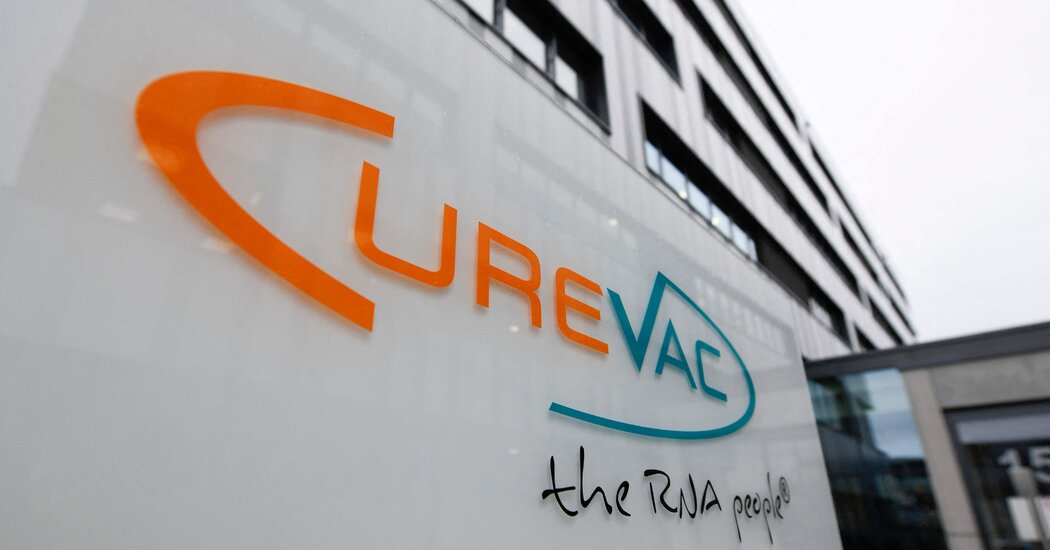
The German company CureVac announced on Tuesday that it was withdrawing its mRNA vaccine for Covid-19 from the approval process in Europe. The company pulled the plug after determining that it might take until June for regulators to make a ruling about the vaccine.
With other mRNA vaccines from Moderna and Pfizer-BioNTech already in wide distribution, the company decided it was time to give up on its initial efforts to address the Covid-19 emergency.
“The pandemic window is closing,” Franz-Werner Haas, CureVac’s chief executive, said in an interview.
The company will also terminate its advance agreement with the European Commission to sell it 405 million doses of the vaccine after approval.
But in the longer term, CureVac is not out of the Covid-19 vaccine business. The company is partnering with the pharmaceutical giant GSK to start a clinical trial of a new version of the vaccine that they hope will be more effective. The companies are also investigating how to combine seasonal booster shots to work against both Covid-19 and influenza.
Founded 20 years ago, CureVac pioneered early research on mRNA vaccines along with the German firm BioNTech and the U.S. company Moderna. At the start of the Covid-19 pandemic, all three companies developed new vaccines against the coronavirus.
While Moderna and BioNTech moved swiftly into clinical trials, CureVac was slower to find partners to support its vaccine’s development. Nevertheless, some experts saw promise in the CureVac shot, hoping that it could help address the global shortfall in Covid vaccines.
The European Medicines Agency gave CureVac special priority for its application, cutting the time needed for authorization. But in June, the company made a disappointing announcement: A clinical trial found that the vaccine’s efficacy was just 48 percent. By comparison, the vaccines from BioNTech and Moderna had efficacies around 95 percent.
Despite that disappointment, CureVac went ahead with its application for authorization in Europe, and submitted a final data package in September. In its updated application, CureVac asked that the vaccine be considered only for people 18 to 60 years old. In that group, the clinical trial had found a moderately higher vaccine efficacy, of 53 percent.
The European regulators’ response was less than encouraging. “We were not being lined up for emergency review,” said Dr. Klaus Edvardsen, the company’s chief development officer.
CureVac’s Covid-19 vaccine is now the seventh to be abandoned after entering clinical trials. Last month, Sanofi announced it was giving up on its mRNA vaccine.
But CureVac’s newer version may have more success. In August, the company shared the results of an experiment on monkeys, showing that the new vaccine generated 10 times as many antibodies against the coronavirus as the original one did. CureVac will begin testing it in people in the next couple of months.
Dr. Haas said the company’s strategy is now “to be fast with a second generation rather than to be very late with the first generation.”
